By Mary MedrumB
MANY PEOPLE KNOW ANDY DIDOROSI AS THE PERSON WHO FOUNDED THE DETROIT BUS COMPANY, AFTER THE M-1 LIGHT RAIL PROJECT WAS PRONOUNCED DEAD IN 2012. About six months later, the Detroit Bus Company was borne out of a collection of used buses, a lot of spare parts and tinkering.
The Detroit Bus Company is available for tours, rentals, and people can purchase rides for school children and youth programs.
 Although he has sparked quite a few small businesses, the Detroit Bus Company was Andy’s first well known entrepreneurial venture in Detroit. He has conceived of many dozens since, and executed several of those concepts.
Although he has sparked quite a few small businesses, the Detroit Bus Company was Andy’s first well known entrepreneurial venture in Detroit. He has conceived of many dozens since, and executed several of those concepts.
These days you can catch Andy on social media hunting down electric “bird” scooters. His adventures with this technology and the citizens of Detroit led to some interesting revelations. The scooter businesses were not really addressing the population in Detroit that needed the scooters the most. So, he decided to obtain, assemble, charge and deliver at least 100 scooters with helmets lo neighborhood kids in Detroit at no cost to them. You can help. Go to his web site, www.playfreebird.com to find out how lo help with this project.
ANDY’S NEWEST VENTURE IS CALLED POOL. THE NAME DESCRIBES THE SHARING OF RESOURCES, CAPITAL, AND PHYSICAL REAL ESTA TE SPACES FOR THE BENEFIT OF EVERYONE INVOLVED. The particulars of the project can be found at www.hopinthepool.com. He will be launching an experiment in real community development where anybody in Michigan can invest small amounts of money and receive a real return back on their investment throughout the year. When you buy into a project, you own a real share in a house or building and gel your portion of the rent. If they ever decide lo sell the house as a group, investors/shareholders receive a portion of the sale. It’s true wealth-building.
Pool is a project where investors gel actual equity in the real estate project that they choose. Investors own shares in a house the way you would own shares in a company. Each piece of real estate is a different project with different shareholders, based on their interest in the project.
It’s a simple concept that is growing. Traditionally, if you want to invest in real estate, you need lo have the ability to buy a whole house. If you are lucky enough lo have a rich friend or family willing to invest with you, that’s great. Real estate is one of those things that people use to build generational wealth.
For most of us, the realization of wealth through property ownership is impossible or a long shot at best. So, if we can band together and make the projects work in the long term, everyone can benefit. This is radical wealth building. Pool is a way for anyone lo participate in the real estate market; it is a structural system that can result in large return.
This investment is in your own backyard. You can see the house and meet the renters. Unlike a REIT (Real Estate Investment Trust), which is a fund that investors put money into and hope that the fund manager chooses profitable properties, investors in Pool have full control over the direction of the funds they contribute and can choose the real estate in which they want to participate. As part of a REIT, you might own part of a strip mall in Vegas or a coffee shop in Lexington, Kentucky. Pool invests locally only, and you know intimately what your portfolio holdings are. Individuals in Pool only invest in distinct projects.
The first house was purchased by Didorosi and will be renovated by him. This iteration of the process will help him organize the entire enterprise.
‘We haven’t formally launched it yet because we are wailing for approval from the state,” explains Didorosi. They can’t share in financial arrangements or promise any kind of a return because of the rules of security law.
Pool believes investors should be able to see where every dollar goes, so Andy has taken care of that. Investors will get a dashboard where they can see every dollar in and out of the organization.
‘We’re proud of what we’re building and aren’t shy about showing off.”
DIDOROSI CAME UP WITH THE IDEA OF POOL WHEN LOOKING AT PROPERTIES that he was interested in buying. He tried to get buildings and ii was difficult. If you don’t have enough money or a bank or investors to help you secure the property, you have no access to the incredible wealth-building opportunity that is right in your own back yard.
Didorosi believes that the reason this hasn’t been accomplished by anyone up lo this point is because people might be afraid of running up against securities law, which is daunting. He is hoping he can reduce some of that friction and level the playing field so everyone can participate.
The dream is to be able to invest in commercial property and the businesses within it. The businesses within those commercial properties might also have the chance lo become partial owners in that project. As partial owners, they can help make decisions about the property and capture some of the value created, instead of just getting booted out when the owners decide to sell.
There is a lot of interest in the small amount of information that Didorosi has been able to share so far. ‘We are very strictly not soliciting or asking people lo invest yet. I personally know someone who has gotten in trouble with those laws, and it cost him $30,000.”
“I would love to see a large number of people invest into the real estate in their own communities directly. I think that will have a huge number of ripple effects. If people are the investors in the properties around them, ii will ensure that the businesses will thrive.”
He has a point. Investment in one’s own neighborhood is an investment in the outcome of those properties. There is elevation of human capital and social capital that follows in the wake of renovated property and infrastructure that is cared for and maintained. Public parks, schools, recreation centers, businesses, and cultural centers all prosper under the care of local ownership; good neighborhoods attracts good neighbors.
“We are in a crisis of ownership right now.”
Hong Kong owns a lot of property in Detroit. Large investment groups that don’t have any footprint in the city own much of the city.
“Local ownership will change the fabric of the city forever. We, as the people, have to be the next billionaire at the table. We have to make this a choice. We are a system of capitalism, which means that those with the capital get to make all the decisions. Until we assemble capital into an efficient structure that can go out and do the work, we’re not going to have any power in our own communities.”

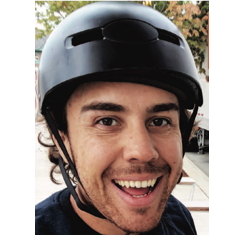
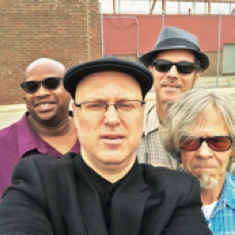
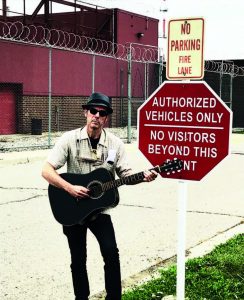 skills through a 501c3 program called Jail Guitar Doors (JGD). The nationwide program run by Michigan rock icon Wayne Kramer provides prisoners with musical instruments and instruction in songwriting and playing to reduce prison violence and reoffending. JGD is in over 120 U.S. prisons, and just expanded to the Ryan ReEntry Facility in Detroit the summer of 2018.
skills through a 501c3 program called Jail Guitar Doors (JGD). The nationwide program run by Michigan rock icon Wayne Kramer provides prisoners with musical instruments and instruction in songwriting and playing to reduce prison violence and reoffending. JGD is in over 120 U.S. prisons, and just expanded to the Ryan ReEntry Facility in Detroit the summer of 2018. with Kramer to bring the program to the United States in 2009.
with Kramer to bring the program to the United States in 2009.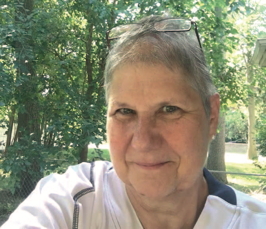
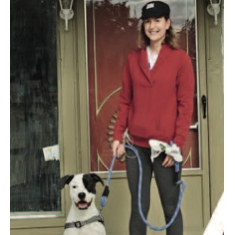
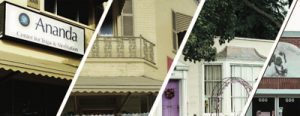 including Green Daffodil, The Dana Keaton Collection, 700 Livernois Fashion House, Olive’s Bloombox, Christopher George Creations, The Kulick Center, Schramm’s Mead, The Anand Center, Purple Door Tea House, DK Dental, Imax Printing, Joe’s Party Store, Axle Brewery and Margaux & Max. Green Daffodil, a bath-and-body shop, coined the name eight years ago, and it officially took off during the beginning of the construction stage on Livernois earlier this year.
including Green Daffodil, The Dana Keaton Collection, 700 Livernois Fashion House, Olive’s Bloombox, Christopher George Creations, The Kulick Center, Schramm’s Mead, The Anand Center, Purple Door Tea House, DK Dental, Imax Printing, Joe’s Party Store, Axle Brewery and Margaux & Max. Green Daffodil, a bath-and-body shop, coined the name eight years ago, and it officially took off during the beginning of the construction stage on Livernois earlier this year.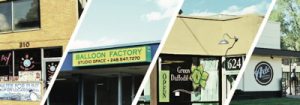 and diverse. We want the SoFe District to be the new hot thing!”
and diverse. We want the SoFe District to be the new hot thing!”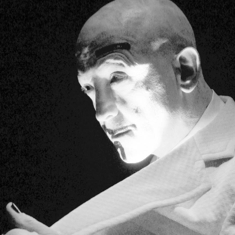
 what we could do as a two-piece with pre-recorded music and props and character sketches. All performed live. About a year later, my dear friend in the group, Rick Maertens was diagnosed with bone cancer. So we retired Fugitive Poetry. I think our last performance was Spring of 1986, in Windsor. Rick and I were living together at this time and his fiance and myself, along with Southeast Hospice, we all took care of him.
what we could do as a two-piece with pre-recorded music and props and character sketches. All performed live. About a year later, my dear friend in the group, Rick Maertens was diagnosed with bone cancer. So we retired Fugitive Poetry. I think our last performance was Spring of 1986, in Windsor. Rick and I were living together at this time and his fiance and myself, along with Southeast Hospice, we all took care of him.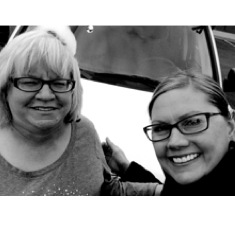
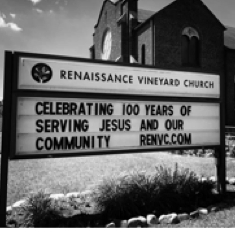
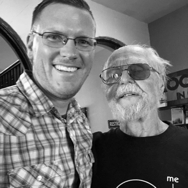 believers, according to RVC founding pastor Jim Poole. For the next twelve years, the church expanded and began meeting in several different locations across town. “The pastor at the time was also the Superintendent of Ferndale Schools,” Poole said. “They met for a while all along the 9 Mile corridor.”
believers, according to RVC founding pastor Jim Poole. For the next twelve years, the church expanded and began meeting in several different locations across town. “The pastor at the time was also the Superintendent of Ferndale Schools,” Poole said. “They met for a while all along the 9 Mile corridor.”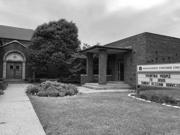 Schools, the Chamber of Commerce, and the City of Ferndale, as well as its community network groups and those who have oversight responsibilities. “They submitted letters and videos,” Poole said. “The Mayor tagged us in a Facebook post.”
Schools, the Chamber of Commerce, and the City of Ferndale, as well as its community network groups and those who have oversight responsibilities. “They submitted letters and videos,” Poole said. “The Mayor tagged us in a Facebook post.” marriage.” Of the Ethiopia trip, she said, “I never thought I’d have the opportunity, and I was skeptical at first, then finally said I would do it. I’ve never regretted it. It was the best experience.”
marriage.” Of the Ethiopia trip, she said, “I never thought I’d have the opportunity, and I was skeptical at first, then finally said I would do it. I’ve never regretted it. It was the best experience.”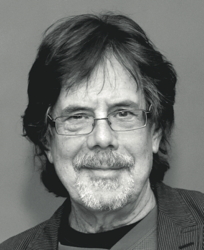
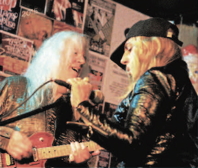
 previous film, Nothin’ But Music, at Found Sound last month, complete with an in-store DVD signing and acoustic performances from some of the musicians prominently featured, including local icons Benny Jet, Howard Glazer and Nate Jones.
previous film, Nothin’ But Music, at Found Sound last month, complete with an in-store DVD signing and acoustic performances from some of the musicians prominently featured, including local icons Benny Jet, Howard Glazer and Nate Jones.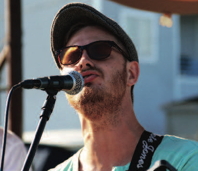 MC5 manager jazz-artist/poet John Sinclair and legendary local blues musician Billy Davis. “(Documentary filmmaking) becomes a way of expanding our world and continually exploring and learning about people.”
MC5 manager jazz-artist/poet John Sinclair and legendary local blues musician Billy Davis. “(Documentary filmmaking) becomes a way of expanding our world and continually exploring and learning about people.”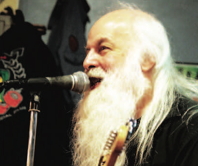 Hagopian and Harabadian consider the last eight years of work to be revelatory -informing their own approach and work ethic, but also opening their eyes to the vastly deep well of talent residing right here in southeast Michigan.
Hagopian and Harabadian consider the last eight years of work to be revelatory -informing their own approach and work ethic, but also opening their eyes to the vastly deep well of talent residing right here in southeast Michigan.
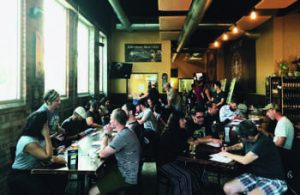 been busy working out the logistics and soliciting feedback from area residents. So far, they’ve secured help from Detroit’s architectural firm Hamilton Anderson, the Community Skatepark Advisory Committee, and the Tony Hawk Foundation, and a few changes have been made along the way.
been busy working out the logistics and soliciting feedback from area residents. So far, they’ve secured help from Detroit’s architectural firm Hamilton Anderson, the Community Skatepark Advisory Committee, and the Tony Hawk Foundation, and a few changes have been made along the way.